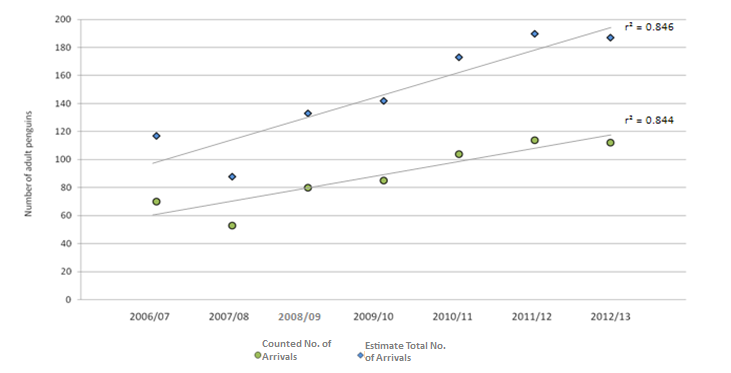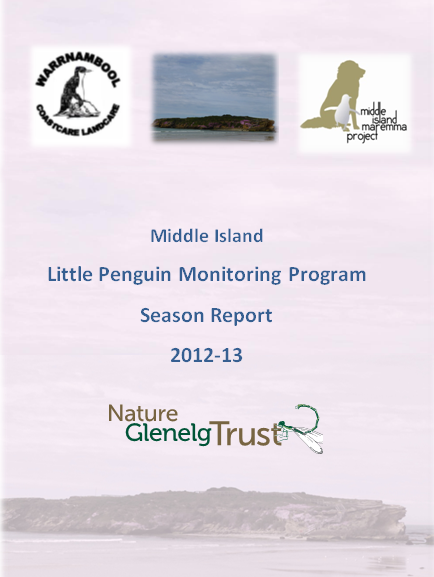End of Season Report for the Middle Island Little Penguin Monitoring Program 2012-13
The 2012-13 end of season report was presented this month by Nature Glenelg Trust to the Warrnambool Coastcare Landcare Group.
In summary, the report showed that over the 2012-13 monitoring season, a peak number of 112 adult Little Penguins were observed arriving at the island on the 14th January 2013 during a dusk count, giving an estimated total of 187 breeding adults arriving. The numbers of Little Penguins observed to arrive at the colony site over the last seven years suggest a steady increase in the population since 2005, when only four adult birds were observed in September.

Graph showing the peak seasonal count of arrivals and total estimated peak number of arrivals for Little Penguin adults, Middle Island, 2006-2013
Over the breeding monitoring surveys, 26 active (artificial and natural) burrows were checked for signs of Little Penguin breeding, including the presence of breeding pairs, eggs and chicks. Ten breeding pairs were observed within these burrows, producing a total of 16 eggs, of which 12 hatched. Only one chick failed to reach maturity, with 11 chicks successfully fledged. This gave a fledging rate of 1.1 chicks fledged per breeding pair. Based on the known breeding ecology of Little Penguins across their range, the breeding results for the Middle island colony since 2006 would suggest successful breeding events are occurring in the absence of fox predation, and in the presence of their guardians, the Maremma Dogs.
The Little Penguin Monitoring Program continues to play a pivotal role in raising conservation awareness of the Little Penguin colony at Middle Island. The program has also provided important information on the recovery of the breeding population since the commencement of the Maremma Guardian Dog project which was initiated after a number of years of severe fox predation.
Volunteer efforts have again been outstanding during the monitoring season of 2012-13, with an in-kind effort of over 280 hours collectively contributed to undertake the arrival counts and breeding surveys. The continuation of such strong support from a volunteer base and the local community will be very important for the Little Penguin Monitoring Program, the Maremma Project, and the efforts to conserve the Middle Island Little Penguins into the future.


